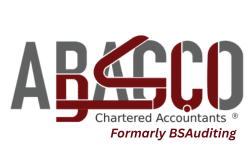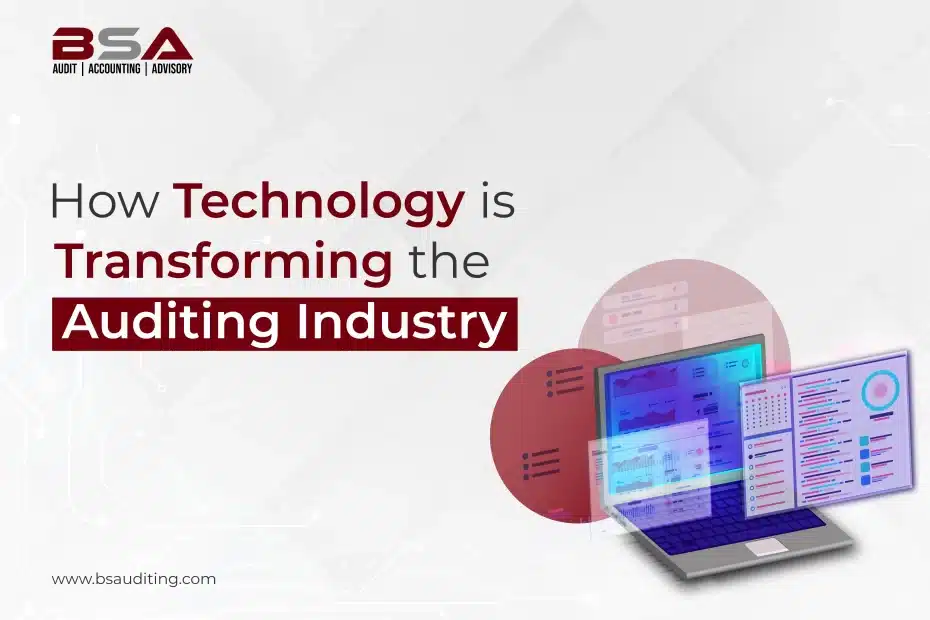The auditing industry is undergoing a significant transformation as a result of rapid technological advancements that are redefining traditional practices. Research from Aalto University reveals that innovative tools such as artificial intelligence (AI), blockchain technology, and robotic process automation (RPA) are streamlining auditing processes and redefining the auditing profession. These technologies enhance efficiency, accuracy, and transparency, effectively transforming financial oversight in today’s business environment.
This blog explores the differences between traditional and modern auditing methods. It also discusses the challenges and limitations of the traditional audit process, along with key modern auditing techniques.
Traditional Auditing Vs Modern Technology Auditing
Historically, auditing has primarily relied on manual processes and document-based verifications. Auditors had to physically examine financial documents to verify transactions and ensure compliance with regulatory standards. This approach is often time-consuming and prone to human error. Traditional tools used in auditing include ledgers, manual checklists, and basic software, which tend to be less costly compared to modern auditing methods.
In contrast, modern auditing has become more advanced due to technological innovations. These advancements help automate routine tasks, analyze large datasets, and provide deeper insights. With this integration of technology, auditors can concentrate on strategic areas such as risk assessment and advisory services.
Traditional Audit process: Challenges & Limitations
In the traditional auditing process, auditors need to collect and analyze financial data, inspect documents, and verify compliance with accounting standards and regulations. This traditional approach has its limitations:
Prone to human error
Manual data entry in auditing can lead to mistakes. Relying on people to input data increases the chances of errors that may affect the results of the audit.
Time consuming
Traditional audits involve extensive manual data collection, sampling, and testing, which are l time-consuming. More time spent on routine tasks reduces the time available for value-added activities such as analysis and strategic insights.
Limited Scope
Traditional audits often rely on sample-based testing, where a small subset of data is reviewed to infer the accuracy of the larger dataset. While this approach can be efficient, it carries significant risks.
Challenges of fraud detection
Identifying fraud or irregularities can be difficult with traditional auditing methods, especially when dealing with large volumes of data.
Modern Auditing Techniques
Modern auditing techniques have evolved significantly with the integration of advanced technologies such as artificial intelligence, data analytics, and automation. These innovations enhance the audit process by enabling faster, more accurate, and more efficient analyses of large datasets in real-time. Unlike traditional methods, which rely on sampling, modern auditing allows auditors to examine entire datasets and detect issues more quickly. This approach helps organizations manage risks better, improve decision-making, and stay compliant in a fast-changing business world.
Robotic Process Automation (RPA)
Automation is changing the auditing field by taking over repetitive and time-consuming tasks. Robotic Process Automation (RPA) tools handle data extraction, transaction testing, and reconciliations effectively. This allows auditors to focus on more important work, like assessing risks and planning strategies. Automation also helps auditors to understand their clients’ business needs, quickly spot potential risks, and provide tailored advice to improve operations and ensure compliance. The global RPA market was valued at $5.63 billion in 2023 and is expected to reach $54.57 billion by 2032, reflecting a compound annual growth rate (CAGR) of 28.7%. This substantial growth underscores the increasing reliance on RPA technologies in industries such as auditing.
Artificial Intelligence
AI algorithms are capable of processing and analyzing large volumes of financial data more accurately and quickly than traditional methods. This ability allows for the identification of anomalies, patterns, and potential fraud risks that might be missed during manual reviews.
Additionally, AI supports predictive analytics, enabling auditors to forecast potential risks and financial trends. This proactive approach improves decision-making and enhances strategic planning. According to research by KPMG, artificial intelligence (AI) and machine learning are revolutionizing the audit profession by automating routine tasks, improving efficiency, and enabling auditors to analyze entire datasets rather than just samples. 72% of audit leaders in KPMG’s survey say that AI has the potential to transform their audit process.
Blockchain
Blockchain technology offers a revolutionary approach to how transactions are recorded, verified, and secured. It uses strong security features and creates records that cannot be changed, which improves transaction verification. This reduces the need for manual checks and increases trust during audits. Additionally, blockchain allows for continuous auditing, which means we can verify transactions in real time. This real-time process gives businesses and stakeholders immediate access to information, enhancing transparency and confidence in the accuracy of transaction data. Overall, this leads to greater trust and efficiency across different industries. The American Institute of CPAs (AICPA) highlights that widespread blockchain adoption may enable auditors to obtain audit data directly from blockchain networks. This capability could facilitate real-time auditing and continuous monitoring, enhancing the efficiency and effectiveness of audit procedures.
Data Analytics
Data analytics tools are changing how auditors work with large amounts of data. Now auditors can review all of a company’s transactions instead of just looking at a small sample. This leads to more accurate and reliable audit results. Using data analytics, auditors can spot trends and patterns over time, giving them important information about a company’s financial health. Advanced analytics can also find unusual entries and errors in financial data, allowing auditors to focus on areas that need more investigation. A report by the Chartered Institute of Internal Auditors and AuditBoard indicates that 60% of internal audit teams have incorporated data analytics into their processes.
Cloud Computing
Cloud computing is making audit processes more flexible and accessible. Auditors can now conduct audits remotely, which helps teams and clients work together, no matter where they are located. Cloud platforms come with strong security features, like encryption and multi-factor authentication, to protect sensitive financial data. Additionally, auditors can easily adjust their resources based on the size and complexity of each audit, allowing for a more efficient process.
Conclusion : The Future of Auditing
As technology continues to evolve, the future of audits promises to be exciting and dynamic. It is not going to replace the auditors; it is educating and empowering them. Rather than replacing the role of auditors, technology is playing a vital role in enhancing their capabilities and empowering them to perform their duties more effectively. Automation is taking over repetitive and time-consuming tasks, enabling auditors to focus on higher-level analysis and strategic insights. Meanwhile, tools such as predictive analytics and blockchain technology are not only providing detailed information but also enhancing transparency within the auditing process.
As the industry fully embraces these new technological innovations in auditing, it is essential for auditors to adapt and evolve. They must integrate their extensive knowledge and experience with these cutting-edge technologies to address the growing expectations from businesses and regulatory bodies. This transformation will demand a new skill set, where technological fluency complements traditional auditing expertise. Despite the significant contributions of technology, the human element remains an irreplaceable part in the field of auditing. Auditors will continue to serve as key players in critical areas such as decision-making, risk assessment, and offering trusted advisory services. Their ability to exercise sound judgment and maintain ethical standards will be essential as they navigate increasingly complex financial landscapes.
The future of auditing depends on balancing technology and the core values of integrity, ethics, and professional judgment that define the auditing profession. This balance will shape the role of auditors in the coming years, ensuring they continue to play an important part in helping businesses succeed and remain accountable.


